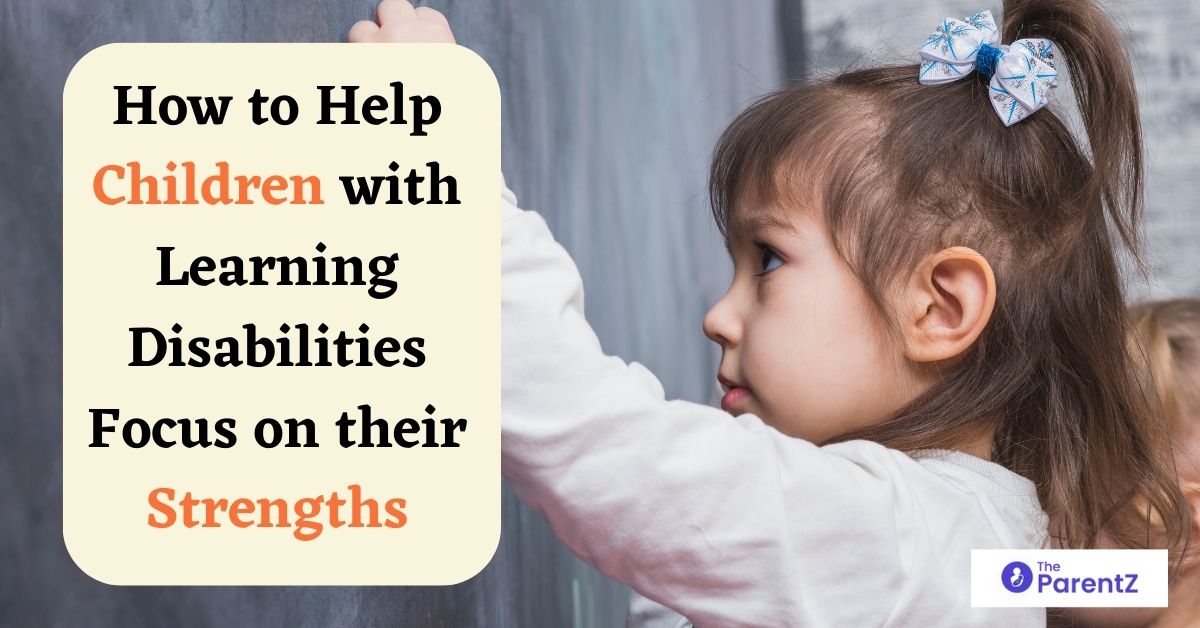Not all children have equal mettle to learn and understand. Some understand faster, some slower, some have different ways of perception, some understand better through unconventional modes. Learning disabilities like dyslexia might slow down the way your child learns, but he/she can have a separate standpoint wherein they can focus on their core energies or things they excel at.
So, instead of making them struggle with competition, you can ensure that despite their disabilities, they can still focus on their core strengths. Below are some parenting tips that will come handy in ensuring the best possible way to support children with learning disabilities to focus on their strengths-
1. Self Awareness
Generally, we try to elude the truth from children with learning disabilities in order to not make them feel different. We need to understand that labels are what we make of them. If we foster a culture of self-awareness, the child would know how to handle it. You can only suggest a cure if you identify the issue. It is important to communicate to such children about their core strengths and unique talents that they possess. At the same time, they can also be told about the challenges that they must learn to handle and cope with them. Instead of hiding and pretending, let’s try being honest with them.
2. Set Attainable Goals
For children with learning disabilities, goal setting actually acts like milestones and prove to be an active check on their conduct and development. Their strengths and their requirements should be taken into account together and worked in tandem towards the creation of attainable goals. Goals will bring forward a feeling of acknowledgement and recognition. It also serves to be a great source of motivation for such children. This way, they keep developing their unique skills while also paying due attention to what are the basic expectations from kids of their age.
3. Tactful Coping Strategies
Their inability to learn or understand seldom triggers stress in them which leads to emotional outbursts. Tactful ways of coping with repetitive inabilities must be developed. Whenever the state of stress is seemed approachable, change the subject or the way it is being taught. Generally, such children adapt best in a playful atmosphere where they do not feel the burden of ‘I have to learn but I can’t learn’.
4. Identify their Strengths
Make them try varied activities wherein they can recognize their true interest. Generally, children with learning disabilities have a creative mind and are good in one extra curriculum or the other. As and when you make them try different things like singing, dancing, painting, karate, etc. they can identify what they are good at. Acknowledging their strengths is important as this gives them a feeling of success, of something they are good at. It would be their own virtue that they would be personally proud of. So, never give up on them trying different things.
Conclusion
Children with learning disabilities have their own set of strengths. Identifying and nurturing these strengths are important for their self-motivation and confidence. They can be slow learners but they will learn if a very strategic and tactful methodology is used to make their strengths create the perfect foundation for something they struggle at. Their creative strength could actually act as a base for them to learn other things. Continual parental support is essential for children with learning disabilities as most of the parents do not even recognize that their child has a learning disability.
It is important for you to understand your child’s performance and learning pattern. If it is different from other children, maybe they are struggling for a reason that is not known prima facie. Once recognized, the parents have to create a culture of openness and self-awareness where a child identifies what he is good at and what he needs to work on. This opens a lot of rooms of opportunities to learn and grow in an unconventional manner. As parents, ensuring to provide this perfect foundation is essential to not curb their creative flow and restrict it to just academics.








Be the first one to comment on this story.